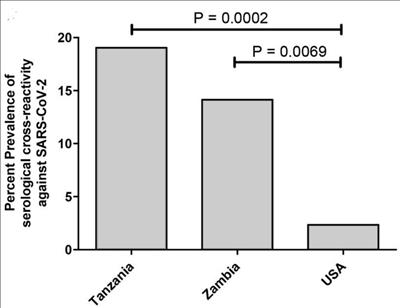Dean's Seminar Features Dr. Charles Wood
Dr. Charles Wood recently presented “Opportunities and Challenges for Research on HIV-Associated Diseases in the Era of Anti-Retroviral Therapy in Sub-Saharan Africa” for the School of Medicine Dean's seminar.
Dr. Wood first provided a brief update on the epidemiology of the current HIV epidemic, reminding the audience that the epidemic is still very much with us in spite of the success of anti-retroviral treatment. There are currently over 37 million individuals living with HIV infection, and about two thirds of them reside in sub-Saharan Africa. Although these individuals can live a normal lifespan, they are more susceptible to a number of chronic diseases, such as cardiovascular diseases, diabetes, and cancers, due to prolonged infection and a suppressed immune system. Therefore, it is important to understand how long-term HIV infection can persist, the location of potential reservoirs, and co-factors and other co-infections that may lead to these diseases.
To address these questions, Dr. Wood has been working for over 27 years in Zambia, which is a sub-Saharan country impacted by the AIDS epidemic. Due to the poor research infrastructure, he first needed to enhance their research capacity by training Zambian doctors and researchers, as well as building research laboratories and clinics. His team initially focused on an AIDS-defining disease, Kaposi sarcoma (KS), a very rare cancer found mostly in AIDS patients and immunosuppressed individuals. KS was also linked to a co-infecting human herpes virus, the Kaposi sarcoma associated human herpes virus (KSHV). His team found that infection by KSHV is very common among the African populations (about 50%), especially in HIV-infected individuals, and that the infection occurred during early childhood, mostly through contact with the saliva of caregivers and household members. Thus, developing public health education and policy for the population on how infants can avoid contact with saliva was critical for preventing infection by this potential cancer virus.
More recently, his group has focused on why and how HIV persists long-term in infected individuals, and the location of the potential HIV reservoirs, such as in the central nervous system or brain where HIV can persist and be reactivated upon termination of anti-viral therapy. The same reservoirs have been observed in patients in western countries, but they were infected by HIV strains that are different from those that are predominantly circulating in Africa. Through whole-body autopsy studies, they found that even in individuals receiving long-term treatment and with undetectable HIV levels, HIV could still be detected in a number of tissue sites yet vary among different individuals. These tissues include the lymph nodes, spleen and appendix. Interestingly, HIV was mostly undetectable in the brain tissues of individuals infected by the African sub-type C HIV virus. This is different from the subtype B virus that is most common in the United States.

Finally, Dr. Wood's laboratory has been studying the impact of SARS coronavirus-2
(SARS-CoV-2) infection and the coronavirus infectious disease 2019 (COVID-19) in the
African population, especially in HIV-infected patients. His lab has noted that now
almost three years into the pandemic, while people in Africa are infected, the prevalence,
hospitalization and deaths have not been as high as in the rest of the world. This
lower level of infectivity is in spite of the high burden of other infectious diseases,
poor health-care system and poverty. The team hypothesized that due to the African
setting, the population there has been exposed to other related human coronaviruses
prior to the pandemic and developed some cross protection against severe disease upon
SAR-CoV-2 infection. The team then tested blood collected from studies prior to the
pandemic and found that between 15 to 20% of the specimens had reactive antibodies
against SARS-CoV-2, compared to about 3% in the U.S. specimens (see figure). This
suggests that in the African population studied, a substantial number of them may
have acquired some protection against SARS-CoV-2 infection and/or COVID-19. The team
is now continuing to study the effects of SARS-CoV-2 infection in the African HIV
and cancer patients.
